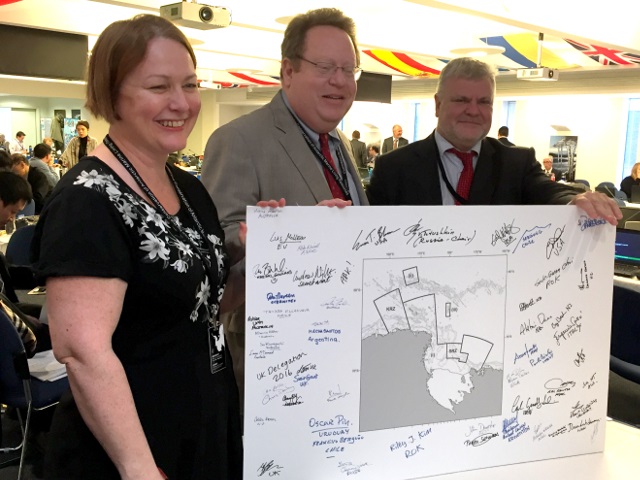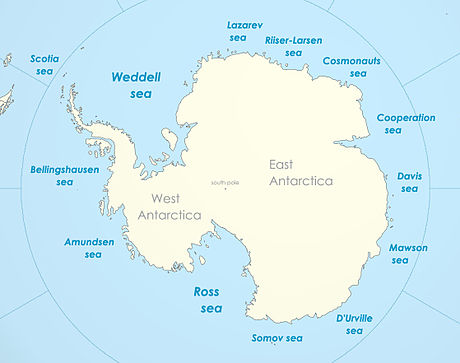World's Largest Marine Park Created
On Friday, 24 countries agreed to create the world's largest marine park in the Antarctic Ocean, covering 1.55 million square kilometers (600,000 square miles) of ocean.
The Commission for the Conservation of Antarctic Marine Living Resources (CCAMLR), meeting in Hobart, Australia, said the Ross Sea marine park will be protected from fishing for 35 years. The new protected area will come into force in December 2017.

The Ross Sea is seen as one of the world's most ecologically important oceans. The sanctuary will cover more than 12 percent of the Southern Ocean. The Ross Sea has been identified by scientists as being one of the world’s most intact large marine ecosystems. It is home to 38 percent of the world’s Adélie penguins, 26 percent of Emperor penguins, more than 30 percent of Antarctic petrels, six percent of Antarctic minke whales and around 30 percent of Ross Sea killer whales. Moreover, it has the richest diversity of fishes in the high latitude Southern Ocean, including seven species found nowhere else.
Claire Christian, director of the Antarctic and Southern Ocean Coalition (ASOC), said: “We are disappointed that CCAMLR could not agree to permanently protect the Ross Sea. However, we are confident that CCAMLR will recognize the value of protecting this area and will renew it in 35 years.”

that matters most
Get the latest maritime news delivered to your inbox daily.
 ASOC was pleased that CCAMLR also progressed towards fully regulating the krill fishery in the Southern Ocean. “Renewing Conservation Measure 51-07 ensures that krill fishing is not concentrated in a small area and that the catch limit is at a precautionary level. Concentrated fishing can put added pressure on penguin and seal colonies, especially during the breeding season. The renewal of this measure will protect penguins, seals and other krill predators from the risk of starvation,” said Rodolfo Werner, senior adviser for ASOC.
ASOC was pleased that CCAMLR also progressed towards fully regulating the krill fishery in the Southern Ocean. “Renewing Conservation Measure 51-07 ensures that krill fishing is not concentrated in a small area and that the catch limit is at a precautionary level. Concentrated fishing can put added pressure on penguin and seal colonies, especially during the breeding season. The renewal of this measure will protect penguins, seals and other krill predators from the risk of starvation,” said Rodolfo Werner, senior adviser for ASOC.
CCAMLR also introduced a risk assessment process that will enhance their capacity to respond to the impacts of fishing and climatic changes on krill-reliant predators.
CCAMLR took steps towards addressing climate change during the meeting. There was agreement to develop a climate change workplan to address major scientific questions and fill information gaps.
“Climate change is having a profound impact across Antarctica putting habitats and biodiversity under increasing risk through ice loss, ocean warming and acidification. These changes will also have direct impacts on the climate worldwide and need to be urgently addressed by CCAMLR,” said Chris Johnson, a marine scientist with WWF, an ASOC member organization.
